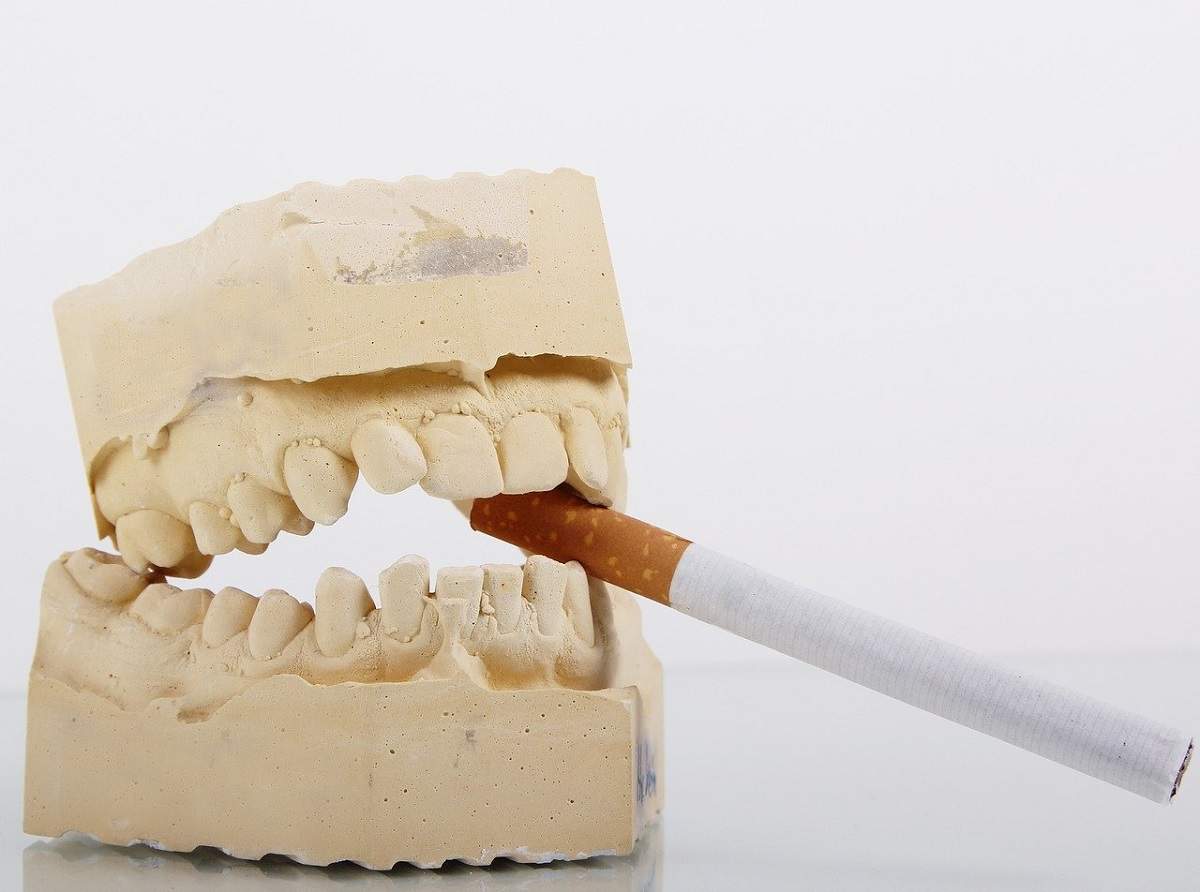Provide global customers with the best e-liquid & nic salt & free base and the best service, all in Vape Hammer.
IS VAPING BAD FOR YOUR TEETH?2021-10-24

We've known for years that smoking is bad news for your oral health. Stained teeth, bad breath, a loss of taste and a far higher risk of oral cancer are just some of the unpleasant side effects of smoking. Vaping is accepted as being far better than smoking from a general health perspective, but how about when it comes to our oral health. Is vaping bad for your teeth and gums and how does it compare to smoking.
SMOKING AND ORAL HEALTH
There is no argument that smoking is pretty disastrous for our teeth and gums. Having been around a lot longer than vaping, there have been extensive studies on how smoking affects oral health.
Bacteria Build Up
Smoking inhibits the mouth's ability to deal with infections. Should a smoker pick up a bacterial infection, even something small that would be efficiently dealt with by a non-smoker, then their oral defence mechanisms are severely weakened and unable to stop the spread of the bacteria.
The bacteria are free to set up home and spread, which, over time, can lead to numerous unpleasant oral problems.
Gum Disease
The build-up of bacteria can lead to infections of the gums and the bone that surrounds the teeth. This can lead to the structure of the teeth becoming weak and eventually to tooth loss. Smokers are twice as likely to suffer gum disease as none smokers.
Bad Breath & Stained Teeth
Tar is the term commonly used for the chemical particles that are left behind as a result of burning tobacco and other plant matter during smoking. Tar is a light brown/yellow colour that leaves behind a tacky residue.
The tar produced from smoking stains teeth, causes halitosis (bad breath) and discolours the tongue. The only way to remove tar stains is a trip to the dentists for professional cleaning.
Oral Cancer
The process of burning tobacco while smoking produces three major dangers, nicotine, tar and carbon monoxide.
Nicotine, by itself, is not specifically a danger; however, it is the substance that forms the addiction to smoking.
Carbon monoxide reduces the amount of oxygen being carried in a smokers bloodstream. This starves the body of oxygen which, in severe cases, can lead to heart disease, including heart attacks.
Tar is responsible for the most significant health risks associated with smoking, including many forms of cancer.
Nine in ten (90%) people who develop oral cancer (e.g. Mouth, Tongue, Throat and Lips) are smokers or ex-smokers. Individuals that smoke are six times more likely to develop an oral form of cancer than non-smokers.
VAPING AND ORAL HEALTH
Vaping does not have the same long history as smoking, and so there are fewer studies into its effects on the human body. However, enough research has been done to suggest that vaping is far better than smoking for your oral health.
Let's take a look at the four key issues discussed above and apply them to vaping;
Bacteria Build Up
It is the act of burning tobacco and the other elements present in cigarettes that produces tar and the almost 7,000 other chemicals associated with smoking. It is these by-products of smoking that inhibit the immune system, allowing oral bacteria to take hold.
Vaping is a completely different process to smoking that doesn't rely on burning. Instead, e-liquids are heated to a point where they convert from a liquid to a vapour. No tar is created during vaping and e-liquids don't contain the thousands of chemicals found in cigarettes.
E-liquids consist of water, propylene glycol, vegetable glycerin, nicotine and flavourings such as tobacco, fruit or mint. All of these ingredients have been used extensively in food products for years and are considered safe for humans.
Gum Disease
As we've outlined above, vaping does not inhibit the immune system like smoking, and therefore, bacterial infections are less likely to affect a vaper than they are a smoker.
Bad Breath & Stained Teeth
Tar is the primary culprit for bad breath and teeth staining in smokers. Vaping does not produce tar, nor does it produce any other chemicals that could contribute to either of these smoking-related issues.
Oral Cancer
Amongst the 7000 chemicals produced by smoking over 200 are known to be harmful to the human body, and as we've highlighted above its tar that is responsible for causing cancer in smokers. Vaping doesn't create tar, and so it stands to reason that the threat of cancer is significantly reduced for vapers.
E-liquids, generally do contain nicotine, which many people associate with cancer and other diseases. However, nicotine is a stimulant that produces similar reactions in the human body to caffeine or sugar. It is highly addictive, but it is not known to cause any severe health conditions in humans provided it is not consumed in excessive doses.
- User Center
- Tracking Order
- Register
- My Orders
- My Account
- Terms & Conditions
- FAQ
- Payment & Shipping
- Payment Methods
- Shipping & Delivery



